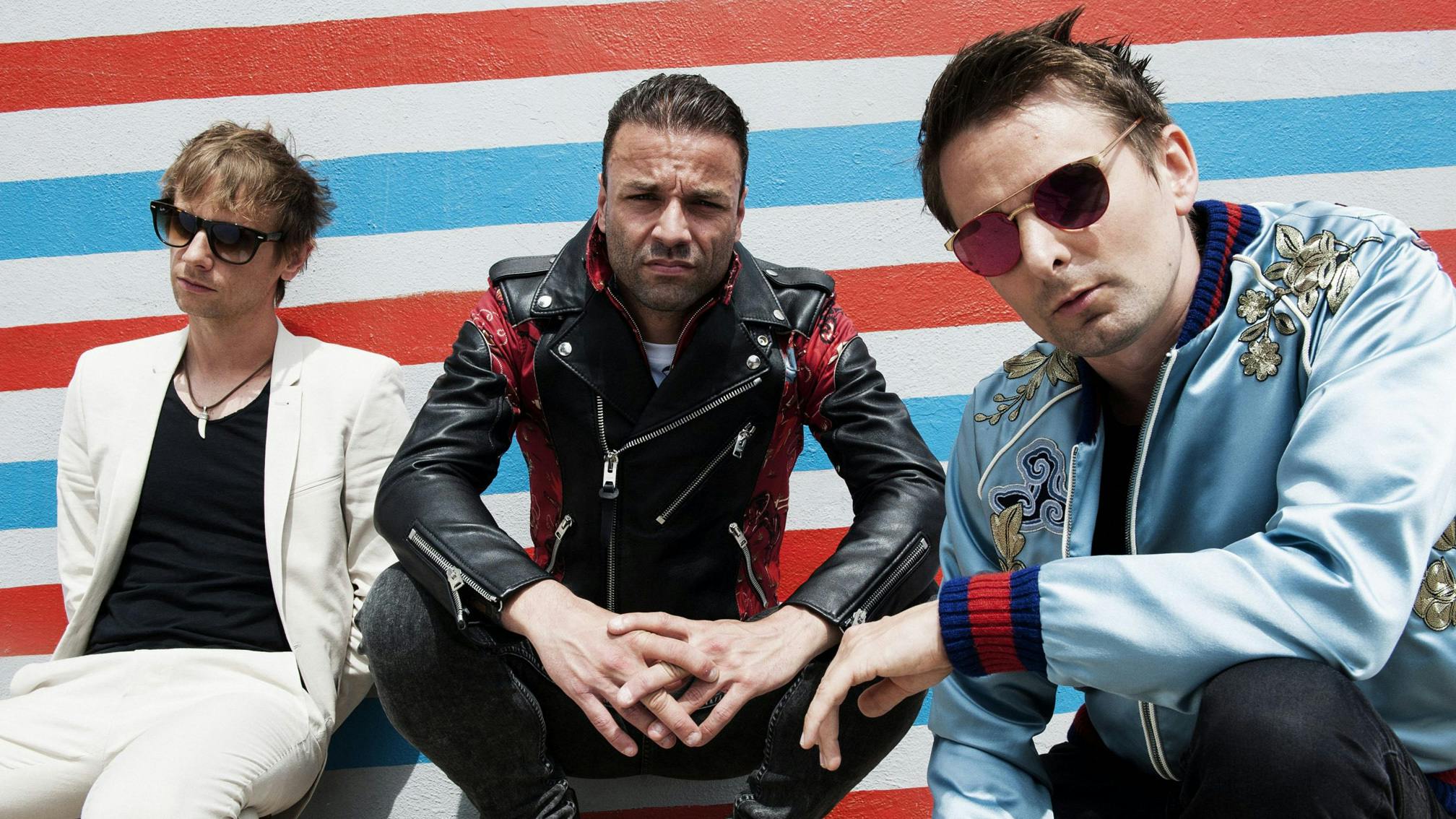You identify yourself as not having an "extrovert personality". What does a typical Saturday look like for Matt Bellamy, when he's not got a VR headset on?
"The last thing I did was a fun gig with a bunch of ex-pat mates who live in LA now. We created a band called The Jaded Hearts Club. We had Graham Coxon there, sometimes we play with Miles Kane. We had Nic Cester, the singer from Jet, turn up. We did a few songs and that was a good laugh. It’s one of the best nights out when we all get together and jam a bunch of old rock tunes from the 60s. I like doing that or I like taking the dog for a walk. I'm usually at most mornings walking the dog for a good hour before breakfast. She’s an Australian Shepherd called Hazel and she’s still like a bit of a puppy. She's like 10 months old now, but yeah, she's like one of my best pals.”
You identify yourselves as "more laid back". What gets your goat, and how do you process that – are you someone who takes everything in their stride, deep breath and carry on, or do you confront problems head on and blitz through them?
“Watching the news is always a source of getting riled up. You know, I think I tend to switch off from it a fair bit. I guess, just sort of the way society is structured and the way the world is tends to drive humans towards being a slave to a system, you know, working all the time and being obsessed with trying to make money. Money’s like ‘freedom credit’ in the modern age. I guess, you look at it and think how it could be structured differently. When you go on VR or play online games, sometimes you go to these other worlds and and you end up chatting with these people from all over the world and and everyone's just all having a great time. Everyone gets on very well. I also went to Burning Man a couple times and I'm not really that into that kind of nusic, but the scene out there is interesting because again, like when when you take humans away from society, they tend to sort of be pretty mellow and happy and get along very well. The structure of the way the world is at the moment, it seems to bring out the worst in people. I guess that’s always been a driving force for me; mistrust for state power is something that's been a general theme in a lot of lot of my songs and albums; I’m in favour of individual power and local government as opposed to distant state power which is a general theme in a lot of the songs. I guess the ‘resistance is futile’… regarding the onslaught of technology in our lives. It's nothing we can do about it now. It's happening. On this album, I’ve chosen to take a more positive viewpoint on that. The last album Drones was a much more negative view point on technology’s invasion of our lives and control over us all that’s still happening. On this album, I’ve chosen to take more of a positive point of view on that, but that's really a choice, you know, that’s almost like a resistance is futile, if you can't beat them join them type scenario, which is kind of coming across on this album. My truth is the really onslaught of technology, especially on the music industry as well. You know, we're one of the first industries that really did experience this thing that's happening all across the world now, this automation of jobs. People are losing their jobs to automation, people are losing their jobs to AI robots and it’s only going to continue. But in the music industry, we felt it way back in the early 2000s – you train as a musician, playing guitar, piano or drums or singing or whatever and then suddenly you turn up at a festival and someone’s just opened up a laptop and presses play. It enables people to create an entire orchestra in five minutes on a laptop.”
